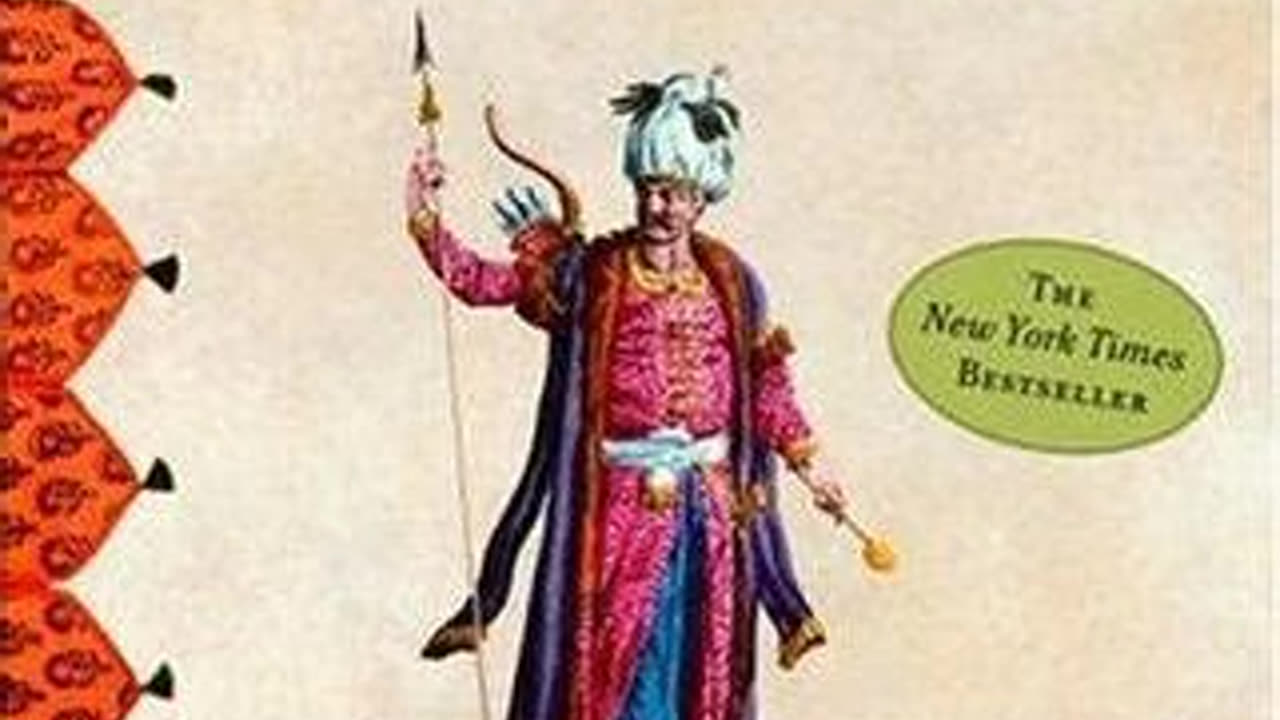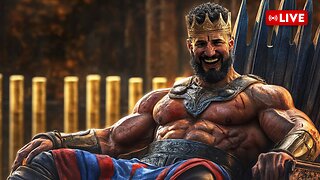Premium Only Content

Genghis Khan and the Making of the Modern World by Jack Weatherford | Summary
Buy Here: https://amzn.to/426QxO3
"""Genghis Khan and the Making of the Modern World"" by Jack Weatherford is a captivating book that explores the life, achievements, and impact of Genghis Khan, the founder and leader of the Mongol Empire. Drawing from historical records, archaeological discoveries, and extensive research, Weatherford provides a compelling narrative that challenges common perceptions of Genghis Khan and highlights his role in shaping world history. Here is a summary of the book:
""Genghis Khan and the Making of the Modern World"" delves into the life and conquests of Genghis Khan, who rose from humble beginnings to become one of history's most influential figures. Weatherford presents a multidimensional portrait of Genghis Khan, exploring his military prowess, leadership qualities, administrative reforms, and cultural impact.
The book covers the following key aspects:
Early Life and Rise to Power: Weatherford provides insights into Genghis Khan's early life, including his upbringing as a nomadic herder and his experiences in a volatile and fragmented Mongol society. It explores the circumstances that led to his emergence as a unifying figure and the subsequent formation of the Mongol Empire.
Military Campaigns and Conquests: The book delves into Genghis Khan's military strategies, innovations, and his successful campaigns that led to the expansion of the Mongol Empire across vast territories in Asia, Europe, and the Middle East. It examines his organizational skills, the integration of diverse cultures and peoples into the empire, and the impact of his military tactics on subsequent warfare.
Governance and Administrative Reforms: Weatherford explores Genghis Khan's governance and administrative policies. He highlights the creation of a meritocratic system, the development of efficient communication networks, the promotion of trade and cultural exchange, and the establishment of a legal code known as the Yassa. These reforms laid the foundation for the empire's stability and prosperity.
Cultural and Intellectual Contributions: The book investigates Genghis Khan's cultural and intellectual contributions. It challenges the common portrayal of him as a barbaric conqueror and instead highlights his support for religious freedom, encouragement of trade and exchange of ideas, and his role in fostering the transmission of knowledge and technologies between East and West.
Legacy and Influence: Weatherford examines the long-term impact of Genghis Khan's empire on world history. He explores the ripple effects of Mongol rule, such as the spread of ideas, technologies, and cultural influences across Eurasia, the opening of trade routes, and the shaping of political systems in subsequent empires.
Through ""Genghis Khan and the Making of the Modern World,"" Weatherford presents a compelling argument for reevaluating Genghis Khan's legacy and recognizing his significant contributions to the formation of the modern world."
-
 1:07:06
1:07:06
Mike Rowe
18 days agoThe Fight For America's Heartland | Salena Zito #442 | The Way I Heard It
30.3K47 -
 2:43:30
2:43:30
TimcastIRL
6 hours agoSouth Park Goes FULL CHARLIE KIRK, Latest Episode ROASTS Trump Again | Timcast IRL
210K79 -
 LIVE
LIVE
SpartakusLIVE
6 hours agoThe Return of the KING of Content
443 watching -
 10:05
10:05
MattMorseTV
9 hours ago $6.53 earnedHe actually did it...
55.1K23 -
 1:32:39
1:32:39
Anthony Rogers
1 day agoEpisode 376 - Todd Schowalter
25.7K -
 3:42:07
3:42:07
megimu32
5 hours agoOTS: Movie Tie-In Games + Remakes: Let’s Play Memory Lane
41.1K5 -
 1:15:06
1:15:06
Adam Does Movies
13 hours ago $1.02 earnedTalking Movies + Ask Me Anything - LIVE
28.6K1 -
 1:17:18
1:17:18
Glenn Greenwald
1 day agoWhat are CBS News' Billionaire Heirs Doing with Bari Weiss? With Ryan Grim on the Funding Behind It; Europe Capitulates to Trump Again | SYSTEM UPDATE #494
113K83 -
 1:43:49
1:43:49
RiftTV
7 hours agoCNN Calls Black NY Shooter WHITE, Cincinnati FATIGUE | The Rift | Guest: Braeden Sorbo, 2Protects1
53.2K15 -
 4:21:04
4:21:04
LumpyPotatoX2
8 hours agoKilling Floor 3: Rampage & Chaos - #RumbleGaming
19.5K1